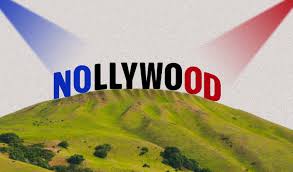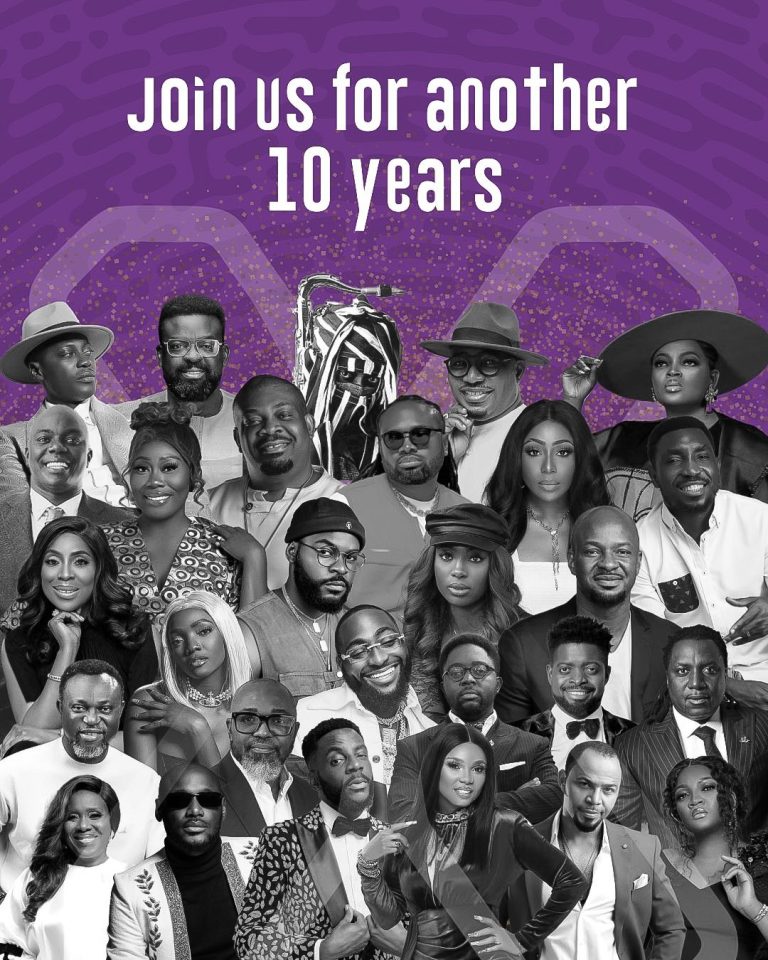
Interestingly, a comparison of the fortunes of musicians and actors in the entertainment industry can only reveal a wide gulf of difference in the nation’s two sub-sectors of the entertainment industry. While music is the largest sub-sector of the entertainment industry, accounting for over 60% of total revenues, consisting of both mainstream and independent artists, the movie industry called Nollywood is viewed as playing second fiddle to the music industry.
Nollywood
Nollywood is the term given to Nigeria’s film industry. It is one of the largest film industries in the world and is second only to Bollywood in terms of the number of films produced. The history of Nollywood dates back to the early 1990s when Nigeria was in an economic recession. However, the advent of video technology and the rise of affordable home video equipment in the country allowed Nigerian filmmakers to produce their low budget films. The early years of Nollywood were marked by the emergence of large independent production companies such as Odeon Films, Afrique Films, and Amaka Igwe’s Vineyard Productions. These film companies produced mostly melodramas, family dramas, and social dramas. By the late 1990s, Nollywood production had become even more prolific, producing over 700 films in 1997 alone. The economic and political chaos of the period also contributed to the production of low budget action, comedy, and horror films. By the 2000s, the industry continued to grow and develop with the emergence of the Nollywood superstars. These actors, directors, and producers are the faces of the industry and have helped to popularize the genre. Stars such as Genevieve Nnaji, Omotola Jalade-Ekehinde, Ramsey Nouah and Richard Mofe Damijo, Funke Akindele, and a host of others have become household names in Nigeria and are projected as brand ambassadors.
Netflix’s contributions to Nollywood
The level of growth in Nollywood has been incredible since Netflix came into the scene in the country in 2016. According to withinnigeria.com, an entertainment website, Netflix invested N9bn into the Nigerian movie industry since 2016. An investment Netflix’s Director of Public Policy for Sub-Saharan Africa, Ms. Shola Sanni during the second Nigeria Digital Content Regulation Conference held in Lagos said the streaming platform has invested nine billion naira in the Nigeria film industry, via converting local film titles, capacity building, and infrastructure development in the industry. It invested in over 200 local licensed titles, and co-produced and commissioned original film content within that period, amounting to having 125 films and TV series available on Netflix as of November 2022.
This investment by Netflix has drastically increased the fortune of the Nollywood industry. Notwithstanding all inputs and investments; the big question is “why are Nigerian musicians richer than their Nollywood counterparts.”
Music Industry
The Nigerian music industry on its part is one of the most vibrant and diverse music scenes in the world, with a wide range of genres, styles, and artists who can make a living from their music. The Nigerian music industry has evolved significantly over the years, from traditional African folk styles to hip-hop, Afrobeats, and other forms of modern music.
Interestingly, the country is home to a variety of music labels and publishers, including some of the most influential in Africa. These labels are responsible for signing and promoting Nigerian artists, as well as producing albums, singles and other music-related content.
While actors typically earn money from their work on movies and television shows, singers make significant money from tours and merchandise sales. A successful tour can bring in millions of dollars in ticket sales, and popular merchandise lines can also generate substantial revenue.
For instance, the Nigerian music industry as rated by Statista shows that its revenue grew from 26 million U.S. dollars in 2014 to 34 million U.S. dollars in 2018, and by 2023 the revenue is expected to amount to 44 million U.S. dollars. According to Statista also, Nigeria’s box office revenue in the movies industry is expected to grow from 12 million U.S. dollars in 2018 to 17 million U.S. dollars in 2023.
While it is worth saying that both sub-sectors are doing well, the comparison of the two sub-sectors of the entertainment industry in the country shows that the music industry is more prolific in revenue generation than the film industry. The same level of differences is manifesting in the personal lives of musicians and their Nollywood counterparts.
Why are Nigerian musicians richer than their Nollywood counterparts?
The difference between the two sub-sectors of the industry stems from opportunities available to musicians and actors. For instance, musicians increase their wealth through touring and merchandise sales. While actors typically earn money from their work on movies and television shows, singers make significant money from tours and merchandise sales. A successful tour can bring in millions of dollars in ticket sales, and popular merchandise lines can also generate substantial revenue.
In getting endorsements and sponsorships, musicians have more opportunities for endorsement deals and sponsorship, particularly if they have a strong social media presence and a large following. These deals can be very lucrative and can add to a celebrity’s overall net worth, not forgetting the huge amount of revenue musicians make from streaming.
With the rise of music streaming services like Spotify and Apple Music, singers may have more opportunities to earn passive income from their music than actors do from their film and TV work. While actors can earn royalties from DVD sales and streaming deals for their movies and TV shows, these revenue streams may not be as significant as those available to successful musicians.
Speaking to Black Campus, Seun Abayomi, Chief Executive Officer of Priceless Ambition, a record label based in Lagos, said, “the growth of the music industry can be attributed to the crucial role played by the government. The government introduced laws and regulations that have enabled the industry to thrive. This includes the Copyright Act of 2007, which protects the rights of artists, producers, and other stakeholders, as well as the Broadcasting Code of Practice, which ensures that radio, television, and other media are regulated and monitored to pay royalties to musicians as their intellectual properties.”
Remarkably the increasing availability of streaming services has also enabled the rise of live performances and ticket sales. In 2021, it was estimated that around 30 million tickets were sold for Nigerian concerts and shows, representing a significant increase from 2020. Concerts and shows are now the second largest source of revenue for the Nigerian music industry, accounting for an estimated 30% of the total revenues.
The emergence of social media platforms, such as YouTube and Instagram are now the preferred platforms for artists to showcase their music and promote their albums. It is estimated that social media accounts for around 15% of the total revenue generated by the Nigerian music industry, while the film industry counterparts still use traditional marketing.
The Fortune musicians like Burna Boy, Davido, Wizkid, Kiss Daniel, Ashake, Naira Marley including many others are making more than what their Nollywood counterparts can boast. This can be shown in the way musicians flaunt their wealth both in real life and on social media platforms.
The music industry is driven by technology and digital distribution platforms, allowing Nigerian musicians to reach a wider audience and build a larger fan base. Despite Nollywood is the third largest movie industry in the world, producing hundreds of movies each year, the rate of its success cannot be compared to that the music industry.
Significantly too, musicians can earn tremendously from a particular album for years if they build a very wide fan base, whereas, actors can go for years without a major movie to their credit.
Abayomi said, while the entire music industry is suffering from a dearth of the fund to carry on their businesses, the music industry is blessed with aggressive music producers and musicians turned producers who take their destiny into their hands. Some of them have performed brilliantly well and are helping to grow our music industry.
“Though the Nigerian movies industry is increasingly popular on the international stage, the industry is still facing financial challenges. Funding is a major issue, as the industry struggles to attract the necessary investments to produce quality content. Without the necessary capital, Nigerian filmmakers are forced to cut corners and make compromises on quality. This can result in a finished product that falls short of expectations.
“Lack of funds can also limit the scope of the projects where it can be difficult for filmmakers to make large-scale productions due to the cost of production and the limited financial resources. This also reduces the ability of filmmakers to market their projects, as they may not have enough to invest in multi-channel marketing.”
For Azeez Disu, publisher and editor of Brand Times online magazine, “lack of funds affects the ability of filmmakers to pay their cast and crew. Without competitive wages, talented individuals may be deterred from working in the industry or may be forced to settle for low-paying jobs. This they say, can further affect the quality of movies, as filmmakers may be unable to acquire top-tier talents.”
The Nigerian movie industry would have been neck and neck with Hollywood and Bollywood if not for the paucity of funds. Movie actors, actresses, producers, and other gladiators within the industry have also bitterly decried the situation, calling on the government to come to the rescue.
Rahman Sadau, an actress, filmmaker, and singer had lamented sometime during the premier of a movie entitled, ‘The Plan’, that paucity of funds is a setback affecting the Nollywood industry, even, as she noted, amid bundles of talents.
The Way Forward
Industry stakeholders have on several occasions called for the government’s involvement in looking at the direction of the movie industry so that it can move the industry to greater heights. They say if the music industry can make a lot of inroads into the world’s culture while dragging the Nigerian entertainment industry along and by extension, Africa, there is every possibility that Nollywood also can do the same if supported.
Azeez Disu advises the government to make loans available to movie producers at a very low-interest rate to grow the movie industry.
In case of the inability of film producers to have access to loans, industry watchers say, the film industry can also navigate its way out of the challenge, by allowing private firms to pump in their funds to own part of the company’s equities.





















